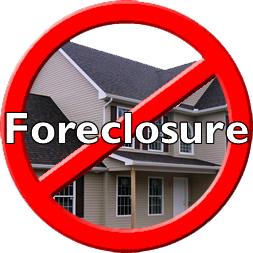By: Michael Powers
“Sue My Lender? But I am just trying to work something out so I can keep my home.” For those of us in the business of assisting homeowners, we often hear this reaction to the idea of pursuing litigation against a lender. What we typically explain to homeowners is that banks do not think the same way they do. Banks make decisions with one factor in mind; money. Accordingly, if a lender is facing the expenses and potential losses of a legitimate lawsuit, they might just be a bit more willing to reach a meaningful settlement.
If your story fits any part of this profile, you most likely have causes of action against your lender. Recent legislation in many states has given homeowners new rights, and some experienced foreclosure attorneys have answered the call to defend homeowners with these new laws. Accordingly, recent trends show a decline in foreclosure starts in those states, as lenders favor more meaningful settlements over the high costs of litigation and foreclosure.
Here are 7 reasons why filing a lawsuit against your lender is the best way to fix your troubled mortgage.
1. Filing a lawsuit puts you in control.
Most loan modification programs are designed for hardship cases and the posturing begins there. When you request a loan modification, even through an attorney, you are still just asking. You are asking your lender to stop the foreclosure process and rewrite the terms of your loan. Ultimately, your lender or servicer decides, and you can bet they will do whatever is best for them financially. It basically boils down to a “net present value” equation, with little regard for you and your family.
When you file a lawsuit, on the other hand, most attorneys will apply for a Temporary Restraining Order (TRO) to stop any foreclosure or eviction proceedings, and a “lis pendens”, alerting any potential buyer of the property that the title is disputed. By taking these steps, you are basically handcuffing the lender’s ability to sell your home until your lawsuit is resolved. This is especially true in non-judicial foreclosure states, as taking these steps moves the process into the court system to ensure the protection of your rights.
2. You deal with decision makers.
Applying for mortgage relief on your own can be a nightmare. The media has been full of stories regarding the mistreatment of homeowners by big banks and their loss mitigation departments. Bank employees have confessed to being trained to lie and purposely deceive homeowners, and reports suggest that “the runaround” is common practice.
When you sue your lender, the lines of communication change dramatically. Your foreclosure attorney will deal directly with your lender’s attorneys. No more “Home Retention Specialist”, and no more “loan modification” programs. In addition, your position changes from begging for assistance to demanding justice.
3.You can be awarded monetary damages.
 A loan modification attorney will typically cost a few thousand dollars, and that money will be spent with no guarantee of outcome. Alternatively, when you file a lawsuit, you may very well be suing for monetary damages, depending on the facts of your case. In particular, many states have adopted a Homeowner Bill of Rights (HBOR) which provides for monetary damages to homeowners victimized by certain deceptive practices, like “dual-tracking”. While this type of representation will be more costly in the beginning, it has the potential to be money well invested with healthy returns. You should speak to an experienced foreclosure attorney to discuss the viability of your case.
A loan modification attorney will typically cost a few thousand dollars, and that money will be spent with no guarantee of outcome. Alternatively, when you file a lawsuit, you may very well be suing for monetary damages, depending on the facts of your case. In particular, many states have adopted a Homeowner Bill of Rights (HBOR) which provides for monetary damages to homeowners victimized by certain deceptive practices, like “dual-tracking”. While this type of representation will be more costly in the beginning, it has the potential to be money well invested with healthy returns. You should speak to an experienced foreclosure attorney to discuss the viability of your case.
4. You may have your court costs and attorney fees paid for.
Unlike the fees paid for a loan modification attorney, you can recoup your attorney fees when you sue your lender. Almost all cases include causes of action which are based on federal laws. These suits are filed in Federal Court, and a plaintiff can be awarded court costs and attorneys fees in those cases.
5. You will likely end up with a better mortgage than a loan modification would produce.
First of all, most loan modification programs are designed to address a hardship. Those programs most often seek to reduce your monthly payment in order to provide immediate relief. However, many loan modifications achieve this payment relief by adding your delinquent balance to your principal balance. In the short run, a loan modification may reduce your payments, but eventually graduate to a higher payment, since your balance has grown. In other words, it is only a temporary solution which does not serve your long term best interests.
In most cases where homeowners sue their lenders, the banks will attempt to have the case dismissed. If that fails, they will typically move for a summary judgment. If that fails, the case is set for trial and moves into the “discovery” phase. This is the point at which lenders must prove their standing to foreclose, by demonstrating a perfected chain of title. Well, if you remember the “robo-signing” scandal, you know that many of the loans that were securitized through the MERS system are missing the appropriate paperwork to demonstrate such a chain. This is the reason that some banks spent billions of dollars generating fraudulent documents. Accordingly, it is at this point that many banks choose to settle the case with a generous offer, instead of facing the high costs of trial and potentially having their claim to the property nullified by a quiet title lawsuit. Unlike loan modification programs, these settlements are typically far more meaningful and include elements like principal balance reductions. At the end of the day, nothing cures a troubled mortgage like a principal balance reduction.
6. It is the best way to stop a sheriff’s sale/auction.
 When you submit a Request for Mortgage Assistance and Affadavit (RMA), lenders are “required” to postpone the sale of your home until they have made a decision regarding your request.
When you submit a Request for Mortgage Assistance and Affadavit (RMA), lenders are “required” to postpone the sale of your home until they have made a decision regarding your request.
Unfortunately, this does not always happen. In addition, they can postpone the sale to a future date and render a declination only days before the next sale date, leaving you no time to find some other solution to stop the sale of your home. Many homeowners are then left with no choice but to file a bankruptcy in order to obtain a “stay” which stops the sale. However, even a bankruptcy is a temporary solution. The lender can move to have the stay lifted, and the foreclosure process begins again.
When you file a legitimate lawsuit, you can ask the court for a Temporary Restraining Order to stop the sale until such time as your lawsuit has been resolved.
7. You could end up with your house free and clear.
While it is rare, a successful “quiet title” lawsuit can “quiet” all claims to your property. In cases where the lender or servicer cannot prove their standing to foreclose, you can ask the court to bar all claims to the property. In cases where your loan was securitized through the MERS system, it is likely that the current holder of your mortgage note will have difficulty proving their standing. This is especially true in states where courts have ruled against the MERS system’s legitimacy. This possible outcome is the biggest reason why lenders will typically offer a meaningful settlement, in order to preclude a complete loss.
If you are trying to resolve a troubled mortgage and loan modification attempts have been either unsuccessful or insufficient to create a meaningful solution, you have nothing to lose and everything to gain by speaking to an attorney about the viability of suing your lender! Most legitimate attorneys who practice law in this area will offer you a no obligation assessment of your case, so you can make an educated decision as to whether or not suing your lender is the right choice for you.
